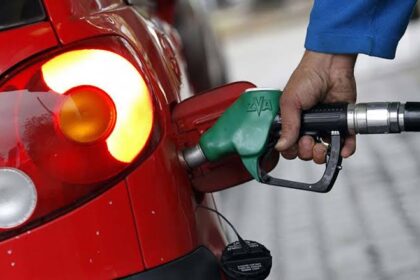A United Nations envoy, Ms Damilola Ogunbiyi, says efforts by the global community to contain the Coronavirus (COVID-19) pandemic are threatened by electricity supply challenges in developing countries.
Ogunbiyi, who is the Special Representative of the UN Secretary-General for Sustainable Energy for All, gave the warning in an article published by Thompson Reuters Foundation News.
The March 31 opinion piece is titled: “Power in a pandemic – why energy access matters during Coronavirus”.
She stated that the social distancing and stay-at-home measures adopted by many countries to stop the spread of COVID-19 could only work where there was stable and sufficient power supply.
But this is not the case in Africa and parts of Asia with an estimated 840 million people, mostly in sub-Saharan Africa, living without access to electricity, she submitted.
“As the virus spreads, especially across Africa and parts of Asia, one of the most used preventative measures is a luxury not all countries can afford.
“Social distancing and stay-at-home measures being adopted in many countries are predicated on an important assumption: that populations have access to reliable, affordable electricity to stay connected and continue to communicate with public services and one another remotely.
“The reality is 840 million people, predominantly in sub-Saharan Africa, are living without access to electricity and hundreds of millions more only have access to very limited or unreliable electricity.
“Many of these people, largely women, reside either in crowded cities or rural areas.
“‘Sheltering in place in such areas for long periods of time may not be possible as energy is needed to cook and store food, or to cool homes,” she said.
Ogunbiyi, who is the immediate past Managing Director of Nigeria’s Rural Electrification Agency, also highlighted the importance of electricity in the treatment of patients.
According to her, the ability of medical personnel to treat patients is based on the assumption that health facilities and equipment are fully functional with sufficient and uninterrupted power supply.
“In parts of Sub-Saharan Africa, it is estimated that only 28 per cent of health facilities have access to reliable electricity.
“As COVID-19 cases grow, we risk making a challenging situation impossible for those hospitals, health clinics, and first-line medical services as they try to treat critical patients with equipment that relies on electricity.
“And even when treatments become available, a lack of a cold chain and refrigeration would mean rural, vulnerable populations cannot access vaccines,” she stressed.
She suggested three ways to address the problem, including prioritisation of electricity supply to health facilities and first responders.
Ogunbiyi underscored the need to keep “vulnerable consumers” connected through affordable energy solutions for low-income households and communities.
“An important step will be to work with project developers and ensure a commitment to provide energy at low or no cost, suspend bill payments and not to disconnect households during the crisis.
“Governments should adopt a suite of mandatory safeguards to protect consumers, as well as work with donors and investors to support and cover costs to keep off-grid developers and utilities in the market,” she recommended.
Finally, she called on countries to ramp up their energy production in preparation for a more sustainable economic recovery after the pandemic.



